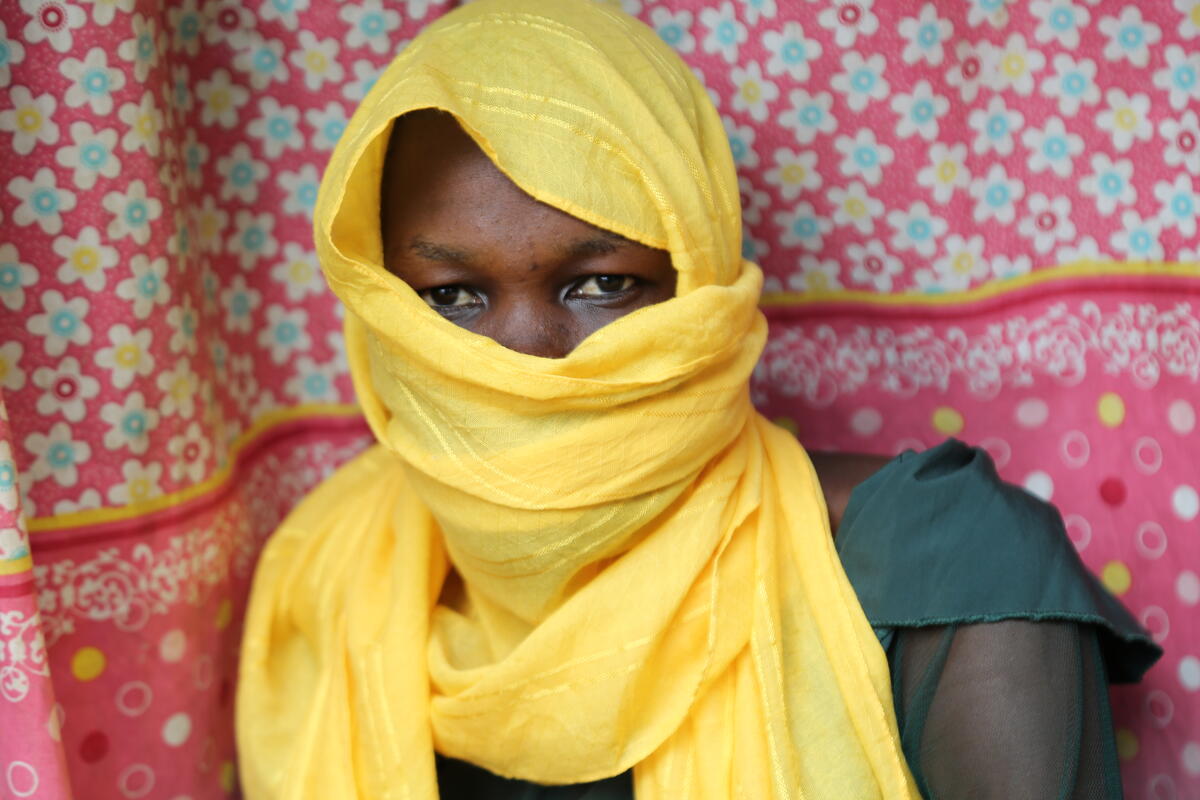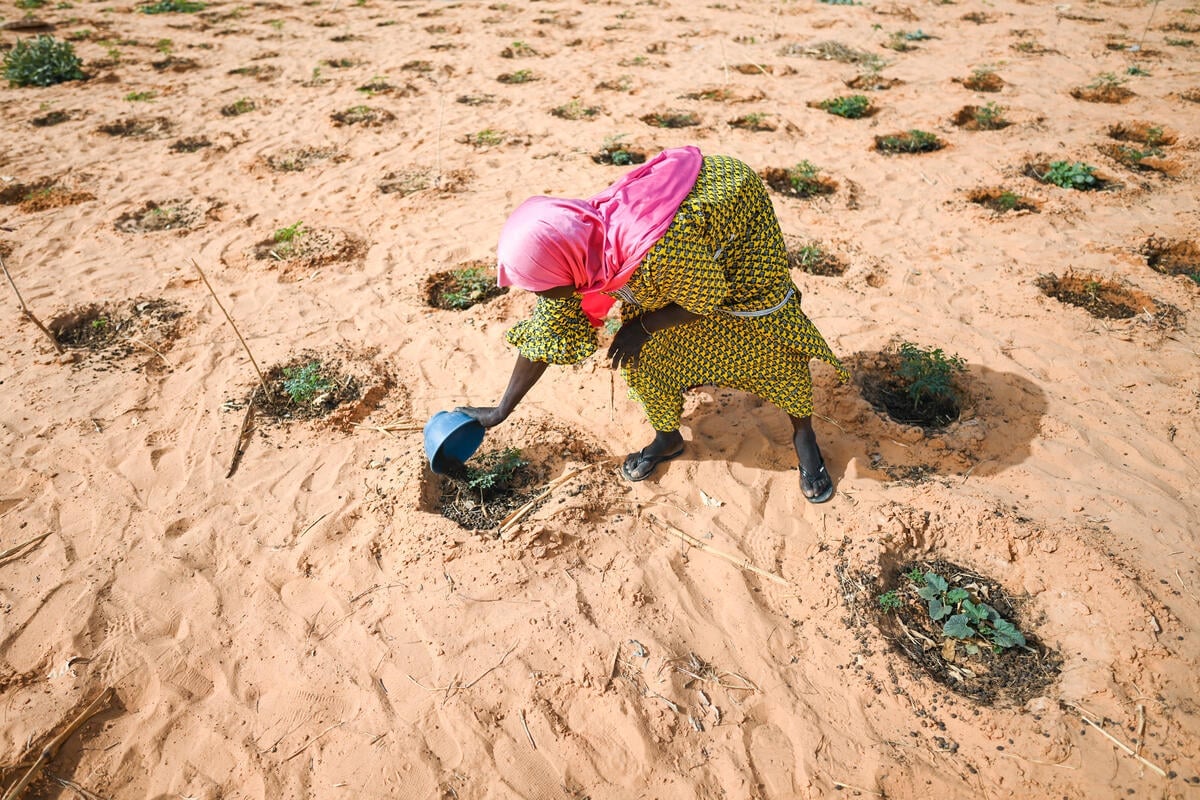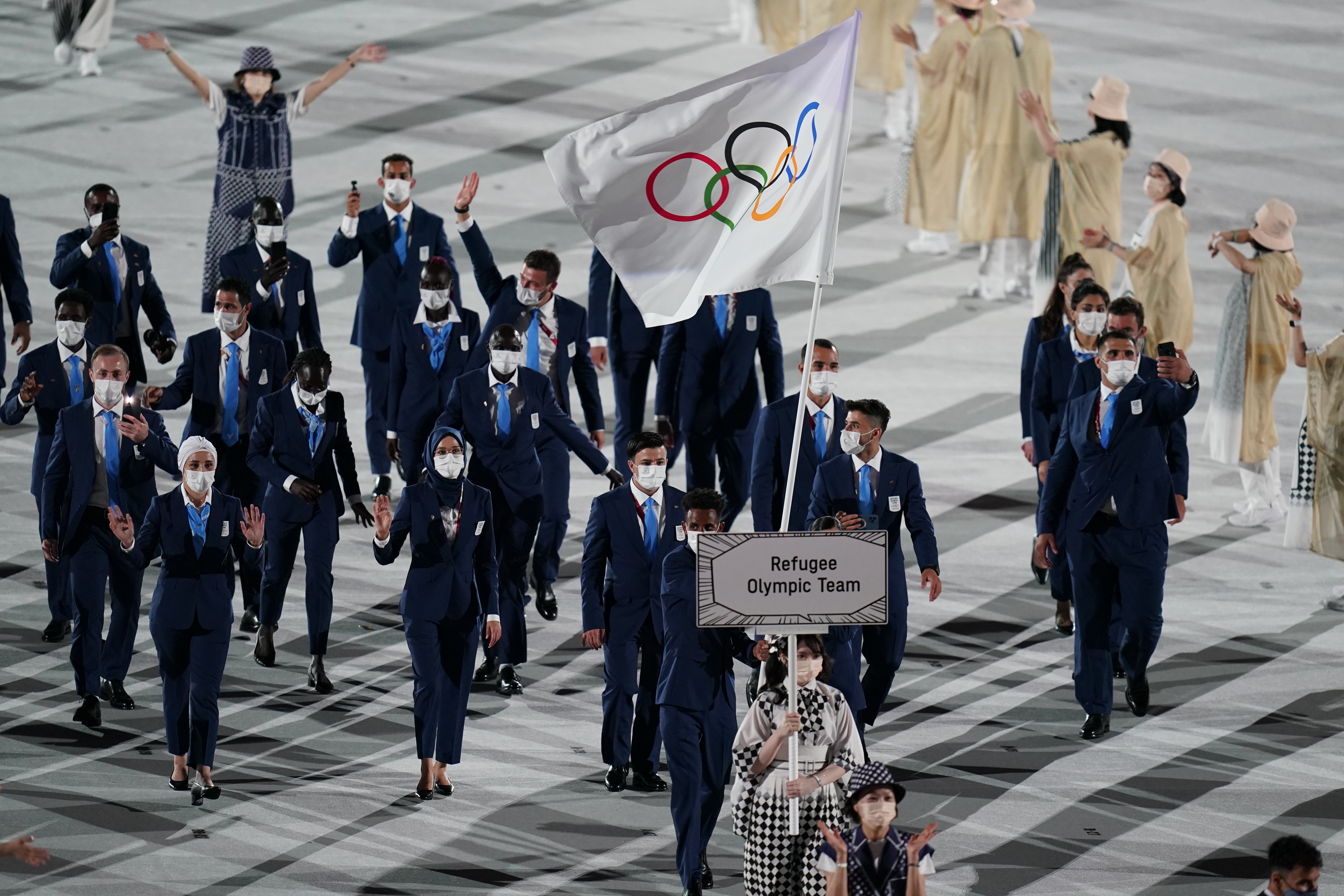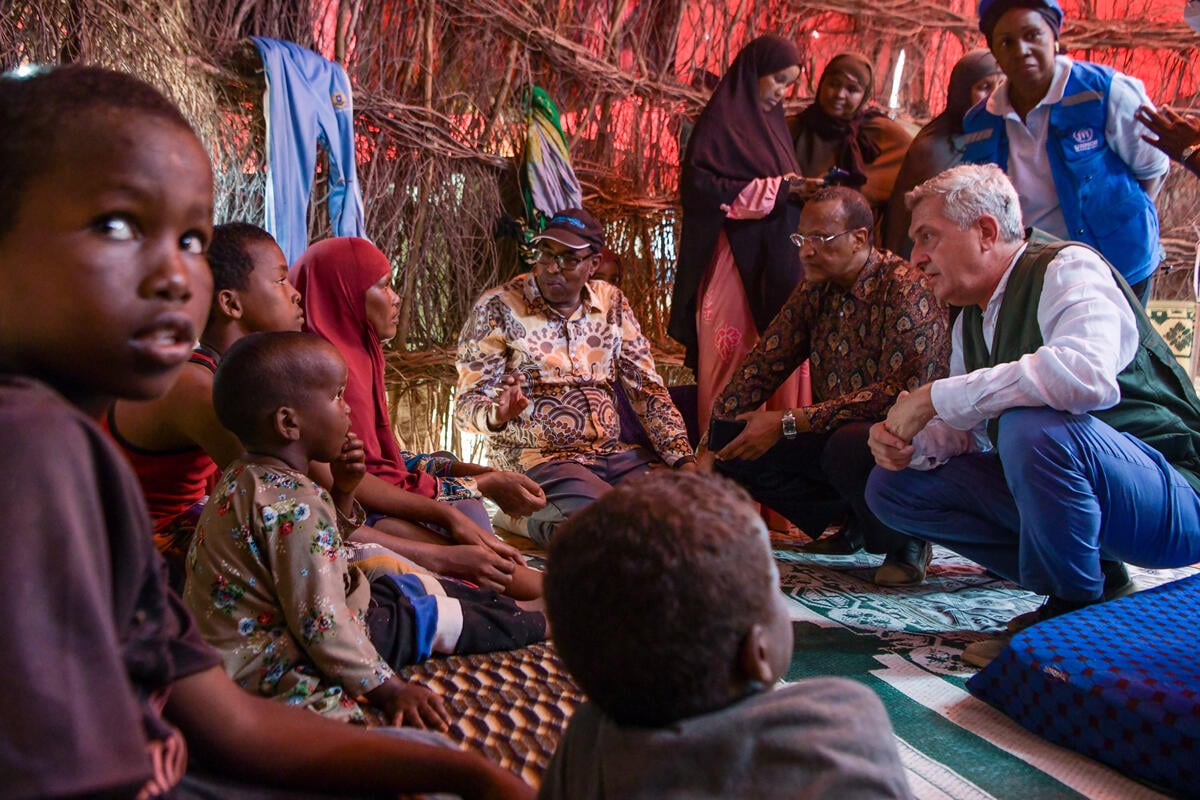At the Still Point

At the Still Point
how the war in Syria and life in exile have changed her.
When UN High Commissioner for Refugees António Guterres visited Lebanon recently, I accompanied him on a frenetic day of high-profile meetings and encounters with some of the hundreds of thousands of Syrians who have fled to Lebanon.
One stark image above all else is embedded in my memory – that of an old, disabled woman sitting quietly on the floor. She barely moved. I did not even see her face. In fact, I still wonder what she looks like.
Our convoy had taken a three-hour detour to avoid reported 'sniping' in the southern city of Sidon on our way back to Beirut.
We were now paying an impromptu visit to a refugee community, including the old crippled mother and her family. She was sitting in a hallway connecting the family's tiny living space (what appeared to be an abandoned garage) to the outside world. I stood in the corridor feeling asphyxiated by the hurly-burly of people racing back and forth, popping cameras. I asked a colleague why the woman was just sitting there, vacantly.
I felt like patting her on the shoulder and telling her things were going to be okay.
I learned she was suffering from various health problems that prevented her from walking. As reporters and officials swirled around her and cameras flashed, she never once moved or lifted her head to find out what was causing the commotion.
A mother of five, she had arrived in Lebanon with her son and family less than a month earlier. They remember their hometown of Qusayr as "paradise," but fled with only their clothes and a mattress.
What I cannot get over is the thought that this mother may still be exactly where I left her following the High Commissioner's visit – her head bent to the ground, lost in thought, in that narrow and desolate corridor.









